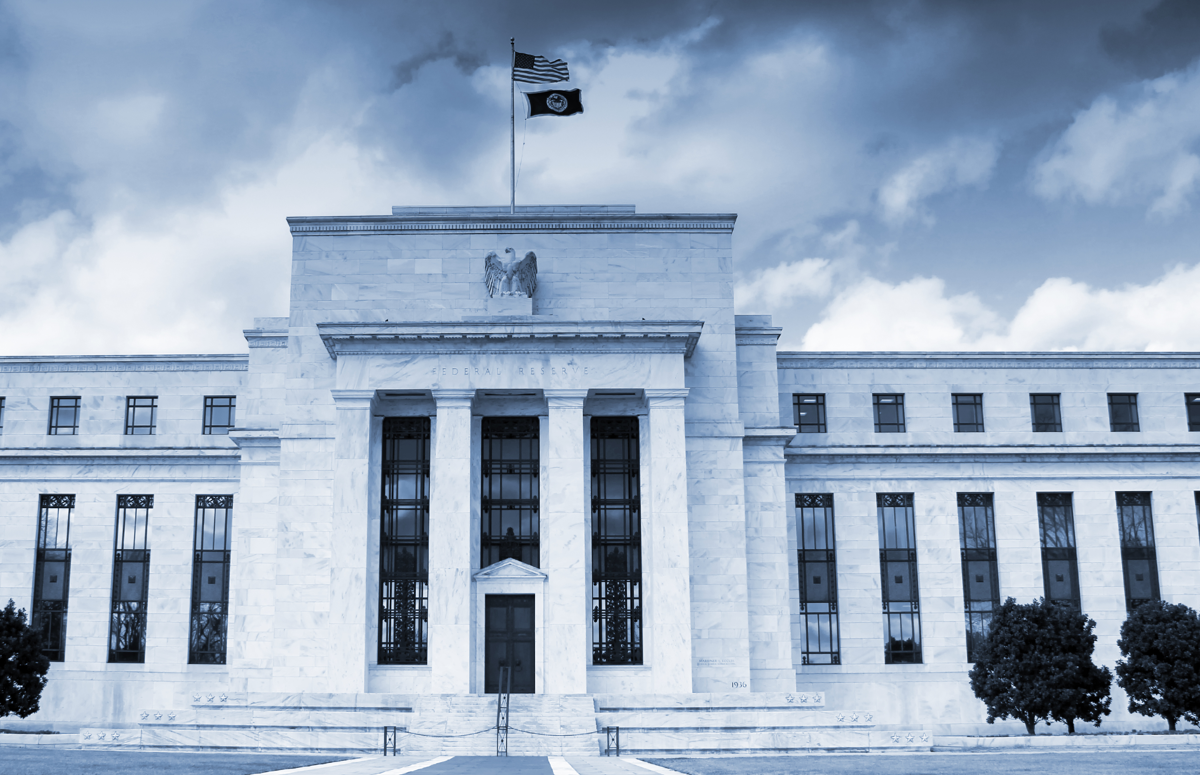Market implied Fed Funds rate discount a string of cuts starting in January 2024 and culminating in a 4.492 percent in January 2025. These expectations are based on the perception that the Federal Reserve will achieve a soft landing and that inflation will drop rapidly. However, market participants who assume rate cuts will be bullish may be taking too much risk for the wrong reasons.
The messages from the Federal Reserve contradict the previously mentioned estimates. Powell continues to repeat that there is more likelihood of rate hikes than cuts and that the battle against inflation is not over.
Markets are not following monetary aggregates, and what they show is not good for the economy. According to the Federal Reserve, between September 2022 and September 2023, M1 declined from $20.281 trillion to $18.17 and M2 slumped from $21.52 trillion to $20.75. However, total borrowings soared from $20.3 trillion to $22.3 trillion. These are the total borrowings from the Federal Reserve, including those from the “discount window’s primary, secondary, and seasonal credit programs and other borrowings from emergency lending facilities.”
What does this mean for inflation and the economy? First, the amount of money in the system is not declining, and it is basically soaring to keep the troubled banking system alive. So monetary aggregates are declining fast, credit for families and businesses is dropping, and the cost of debt is rising at alarming rates, but the Fed’s liquidity injections into banks and lenders are at new record levels. That is why inflation is not falling as it should.
Yes, money printing goes on, but the productive sector is not seeing any of it. In fact, the private sector is bearing the entire burden of monetary contraction.
Because borrowing from the Fed continues to reach new highs, inflation is unlikely to drop as fast as M2 would indicate, and excess money growth continues to generate problems in the economy with few improvements as it just keeps zombie financial entities alive.
In this scenario, unless the economy starts growing fast without any significant credit impulse, something that is too hard to believe, it does not matter if the Fed cuts rates or not. The Fed is likely going to continue to ignore the weakness of the private sector, poor investment, and debt-driven consumption and accept a gross domestic product figure bloated by debt, while unemployment may remain low but with negative real wage growth.
If inflation remains persistent, the Fed will not cut rates, and the deterioration of the productive private sector will be worse because all the contraction in monetary aggregates will come from families and businesses. However, if the Fed decides to cut rates, it will be because they see a significant decrease in aggregate demand. Thus, as government spending is not dropping, the slump in demand will be fully generated by the private sector, and rate cuts will not make families and businesses take more credit because they are already living on borrowed time.
With these conditions, it is almost impossible to create a solid and positive credit impulse from rate cuts when the economy loses the placebo effect of debt accumulation. It is difficult to believe that the productive sector is going to react to rate cuts in the middle of an earnings and wage recession in real terms.
Rate cuts will only come from a slump in aggregate demand, and this can only be the consequence of a collapse in the private sector. By the time the Fed decides to cut rates, the negative impact on earnings and margins is unlikely to drive markets higher, as many expect.
Fed rate cuts as the drivers of multiple expansions and bullish markets may be the ultimate mirage. If the Fed does cut rates, it is because it failed to achieve a soft landing, and by then, the risk accumulation in debt and Fed borrowing will be hard to manage.


























